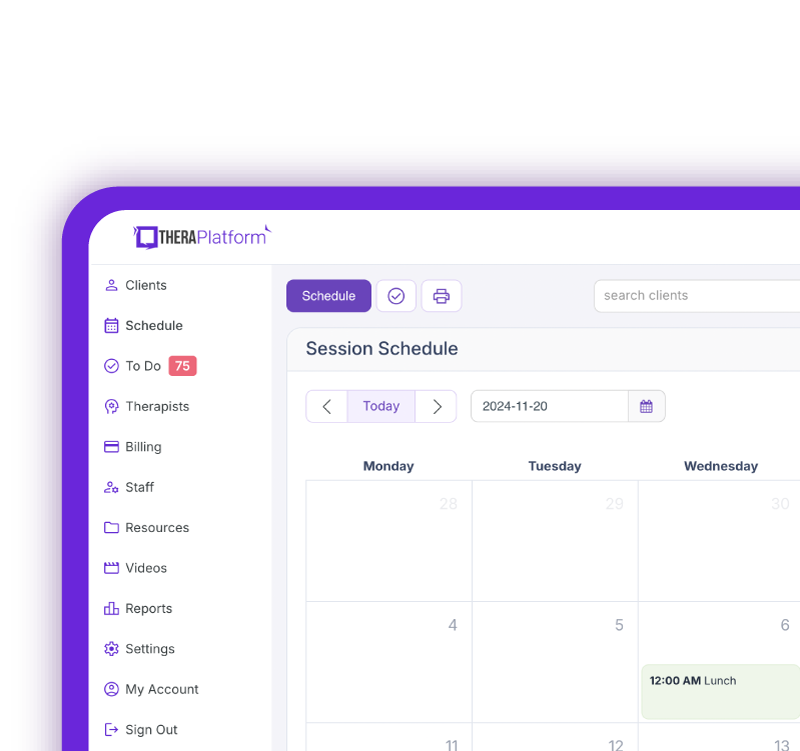ICD 10 Codes Occupational Therapy
RA ICD 10

The ICD 10 code for rheumatoid arthritis (RA) is used to diagnose, treat and bill for an autoimmune disorder in which the immune system attacks the body’s tissues which results in stiffness, pain, swelling, fever, fatigue, weakness, chronic pain, and loss of function in the joints.
Summary
- The ICD-10 code M06.9 is used to document unspecified rheumatoid arthritis, an autoimmune disorder that can impact joints and other organs. Accurate coding ensures proper diagnosis, reimbursement, and continuity of care. Enrolling in an insurance billing course for therapists can help providers enhance their knowledge.
- Occupational therapists play a key role in evaluating and treating individuals with rheumatoid arthritis by assessing functional abilities, fine motor skills, environmental factors, and the need for assistive devices.
- Effective treatment includes setting individualized SMART goals, providing patient and caregiver education, and promoting self-management through strategies such as energy conservation and adaptive equipment. Using an EHR like TheraPlatform can help OTs manage client documentation with ease.
- Emerging trends in rheumatoid arthritis care include telehealth, digital monitoring tools, and holistic interventions like diet and stress management, which support early intervention and improved outcomes.
→ Click here to enroll in our free on-demand Insurance Billing for Therapists video course [Enroll Now]
Rheumatoid Arthritis can affect individuals of all ages and can affect everyone differently. Individuals can also exhibit symptoms in areas that don’t include the joints such as eyes, heart, and lungs.
Around 40% of people with rheumatoid arthritis also experience symptoms and signs that don't involve the joints, according to research. Approximately 1.3 million people in the United States have been diagnosed with RA which develops between the ages of 30 and 60.
Streamline your insurance billing with One EHR
- Claim batching
- Auto claims
- Automated EOB & ERA
- Real-time claim validation
- Real-time claim tracking
- Aging and other reports

Diagnostic criteria for Rheumatoid Arthritis
Research has shown that a combination of family history, genetics, sex hormones, and environmental factors such as smoking play a role in the disease. Additionally, diet and exercise may also contribute to RA, as obesity can also increase a person’s risk for developing RA.
Rheumatoid Arthritis symptoms worsen in “flares” because of a trigger such as stress, environmental factors (such as cigarette smoke or viral infections), excess activity, or suddenly stopping medications.
In some cases, there may be no clear cause. The diagnostic criteria for Rheumatoid Arthritis are based on a set of physical exams, imaging results, and laboratory tests.
The diagnostic criteria for rheumatoid arthritis include:
- Positive biomarker tests like Rheumatoid factor (RF) or CCP antibodies
- Synovitis in 2 or more large joints such as shoulders, elbows, hips, knees, and ankles
- Elevated levels of CRP or an elevated sed rate
- Inflammatory arthritis in smaller joints
- Symptoms last more than 6 weeks
Watch this video to learn common insurance billing struggles and solutions
→ Start My Free Trial
→ Start My Free Trial
Occupational therapy assessment and documentation for Rheumatoid Arthritis
Occupational therapists play a pivotal role in the treatment of Rheumatoid Arthritis specifically in helping individuals manage their symptoms and the ability to continue with their daily living tasks.
Treatment of Rheumatoid Arthritis begins with a comprehensive occupational therapy evaluation and assessment of an individual’s current functional abilities, environmental factors, and limitations.
Occupational therapists begin with a medical history and assess functional abilities. Functional abilities may include an individual’s ability to perform various ADL tasks such as bathing, dressing, grooming, hygiene, toileting, eating/feeding, transfers, and IADL tasks such as cooking, cleaning, and medication management.
Occupational therapists will also assess the underlying components of these abilities such as strength, endurance, range of motion (ROM), pain, stiffness, and swelling.
Occupational therapists will also evaluate fine motor skills, as the RA in the joints of the hands can impact the precision of fine motor skills such as performing fasteners, the ability to use utensils, handwriting, and typing.
Furthermore, occupational therapists will also assess and evaluate environmental factors such as the home environment to assess safety and/or ergonomic components for the home.
Additionally, occupational therapists will also evaluate the need for and educate individuals on the use of assistive devices. RA may also impact an individual’s social and emotional well-being, thus, occupational therapists may assess and provide treatment to provide social support and coping strategies.
A crucial component of occupational therapy treatment is goal setting. It is important to set SMART goals that are individualized and incorporate the client’s needs, preferences, strengths, and limitations.
For example, goals could incorporate increasing range of motion, endurance, or social-emotional well-being to facilitate independence in a variety of ADL tasks or IADL tasks.
In addition, patient and caregiver education is important for the self-management of RA. Educating individuals regarding the condition, utilizing adaptive equipment and technologies, energy conservation techniques, and compensatory strategies are important for managing RA.
Practice Management + EHR + Telehealth
Manage more in less time in your practice with TheraPlatform

ICD 10 code for Rheumatoid Arthritis
Another important component of the treatment of RA in occupational therapy is documentation. It is crucial to document history, evaluation and assessment findings, goals, progress on goals, and communication amongst clients and other members of the healthcare team. Documentation also involves the utilization of ICD-10 codes and in this case, specific Rheumatoid Arthritis ICD 10 codes.
The ICD 10 code for Rheumatoid Arthritis and all other ICD 10 codes are defined by International Classification of Diseases, 10th Revision (ICD-10). It is a diagnostic and procedure coding system endorsed by the World Health Organization (WHO).
The goal of using the ICD 10 code for Rheumatoid Arthritis is to help improve clinical communication through providing more information per code and better support for care management, quality measurement and analytics. It also offers an improved ability to understand severity and risk.
In occupational therapy practice, “the ICD-10 is a billable/specific ICD-10-CM code that can be used to indicate a diagnosis for reimbursement purposes.” The ICD 10 code for Rheumatoid Arthritis , unspecified, is M06.9.
It is also vital to incorporate the proper ICD 10 code for Rheumatoid Arthritis to ensure reimbursement, medical necessity, and continued care.
More specific codes with greater level of detail such as affected extremity can be found on the ICD-10 database website. It is important to utilize the ICD 10 code for Rheumatoid Arthritis that is client-specific in occupational therapy practice as it improves overall quality of care and management.
ICD 10 code for Rheumatoid Arthritis | Type |
|---|---|
M06.9 | Rheumatoid arthritis, unspecified |
M05. 619 | Rheumatoid arthritis of unspecified shoulder with involvement of other organs and systems |
M06.849 | Rheumatoid arthritis, unspecified hand |
M06.839 | Other specified rheumatoid arthritis, unspecified wrist |
M06.859 | Other specified rheumatoid arthritis, unspecified hip |
M06.069 | Rheumatoid arthritis without rheumatoid factor, unspecified knee |
M06.879 | Other specified rheumatoid arthritis unspecified ankle and foot |
*All Codes from ICD10data.com
Emerging trends and research around Rheumatoid Arthritis
Rheumatoid Arthritis is an area of continued research and developing treatments. Currently, emerging trends and research are focused on early interventions, digital and telehealth, holistic changes, and pharmaceuticals.
With the growing use of telemedicine and digital health, there is an increase in the use of remote monitoring of RA and self-management tools. These tools can include wearable devices, health apps, and accessibility to telemedicine. Holistic changes are focused on lifestyle factors such as diet and exercise, smoking cessation programs, and stress and emotional management.
Overall, with meticulous assessment, evaluation, documentation, and incorporating the use of the right ICD 10 code for Rheumatoid Arthritis, occupational therapy treatment and intervention methodologies can be more effective.
In addition, appropriate and effective documentation that includes the most accurate ICD 10 code for Rheumatoid Arthritis facilitates reimbursement, care coordination, interprofessional communication, and informed clinical decision-making, and ultimately contributes to individualized client-centered care and outcomes.
Practice Management + EHR + Telehealth
Manage more in less time in your practice with TheraPlatform

How EHR and practice management software can save you time with insurance billing for therapists
EHRs with integrated billing software and clearing houses, such as TheraPlatform, offer therapists significant advantages in creating an efficient insurance billing process. The key is minimizing the amount of time dedicated to developing, sending, and tracking medical claims through features such as automation and batching.
What are automation and batching?
- Automation refers to setting up software to perform tasks with limited human interaction.
- Batching or performing administrative tasks in blocks of time at once allows you to perform a task from a single entry point with less clicking.
Which billing and medical claim tasks can be automated and batched through billing software?
- Invoices: Create multiple invoices for multiple clients with a click or two of a button or set up auto-invoice creation, and the software will automatically create invoices for you at the preferred time. You can even have the system automatically send invoices to your clients.
- Credit card processing: Charge multiple clients with a click of a button or set up auto credit card billing, and the billing software will automatically charge the card (easier than swiping!)
- Email payment reminders: Never manually send another reminder email for payment again, or skip this altogether by enabling auto credit card charges.
- Automated claim creation and submission: Batch multiple claims with one button click or turn auto claim creation and submission on.
- Live claim validation: The system reviews each claim to catch any human errors before submission, saving you time and reducing rejected claims.
- Automated payment posting: Streamline posting procedures for paid medical claims with ERA. When insurance offers ERA, all their payments will post automatically on TheraPlatform's EHR.
- Tracking: Track payment and profits, including aging invoices, overdue invoices, transactions, billed services, service providers.
Utilizing billing software integrated with an EHR and practice management software can make storing and sharing billing and insurance easy and save providers time when it comes to insurance billing for therapists.
Streamline your practice with One EHR
- Scheduling
- Flexible notes
- Template library
- Billing & payments
- Insurance claims
- Client portal
- Telehealth
- E-fax

Resources
TheraPlatform is an all-in-one EHR, practice management, and teletherapy software built with AI-powered notes for therapists to help them save time on admin tasks. It offers a 30-day risk-free trial with no credit card required and supports different industries and sizes of practices, including occupational therapists in group and solo practices.
More resources
- Therapy resources and worksheets
- Therapy private practice courses
- Ultimate teletherapy ebook
- The Ultimate Insurance Billing Guide for Therapists
- The Ultimate Guide to Starting a Private Therapy Practice
Free video classes
- Free mini video lessons to enhance your private practice
- 9 Admin tasks to automate in your private practice
References
- 2024 ICD-10-CM diagnosis code M06.9: Rheumatoid arthritis, unspecified. https://www.icd10data.com/ICD10CM/Codes/M00-M99/M05-M14/M06-/M06.9
- Rheumatoid arthritis (RA): Causes, symptoms & treatment faqs. Cleveland Clinic. https://my.clevelandclinic.org/health/diseases/4924-rheumatoid-arthritis
- U.S. Department of Health and Human Services. (2023, July 27). Rheumatoid arthritis. National Institute of Arthritis and Musculoskeletal and Skin Diseases. https://www.niams.nih.gov/health-topics/rheumatoid-arthritis#:~:text=Rheumatoid%20arthritis%20(RA)%20is%20a,loss%20of%20function%20in%20joints
- Understanding ICD-10. Johns Hopkins Medicine. (n.d.). https://www.hopkinsmedicine.org/johns-hopkins-health-plans/providers-physicians/icd-10



